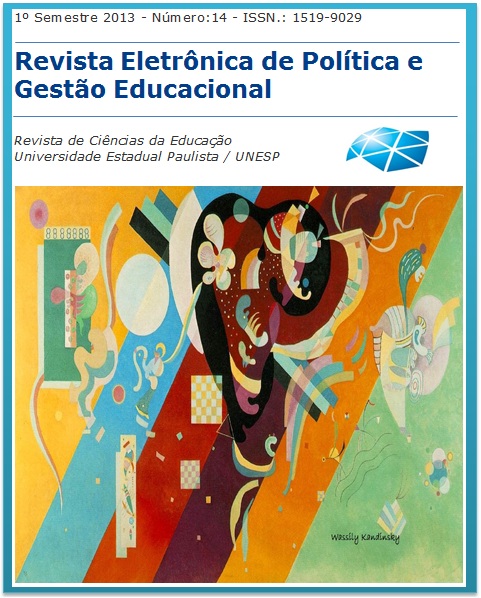Public policies of education for high school at the end of the twentieth century; history in context
DOI:
https://doi.org/10.22633/rpge.v0i14.9339Keywords:
Educational reforms, Secondary education, Training human,Abstract
This paper analyzes the public policies of education for high school, developed by the Ministry of Education, over the past twenty years, seeking to show the relationship between its assumptions and the hegemony of the neoliberal project in Brazil and worldwide. Based on the presentation and critical discussion with several authors, as Dubar (1998), Machado (1994, 1996), Fagotto (1995, 199S), and Fiigotto Franco (2002) and Fiigotto, Franco and Ramos (2005), among others, we noted that this reform is marked transformation the very essence of social organization, whose foundation is in the market, which has interests and needs concrete economic policies and in the process of reformulation of secondary education. The middle level reform is therefore a particular form of intervention in corporate design, ending the resistance and social struggles, trying to naturalize the submission of human labor market. Educational reform thus is an expression of liberal political strategy for the insertion of the working class in the new world economic order.
Downloads
Downloads
Published
How to Cite
Issue
Section
License
Copyright (c) 2017 Revista on line de Política e Gestão Educacional

This work is licensed under a Creative Commons Attribution-NonCommercial-ShareAlike 4.0 International License.
Manuscritos aceitos e publicados são de propriedade da Revista on line de Política e Gestão Educacional. É vedada a submissão integral ou parcial do manuscrito a qualquer outro periódico. A responsabilidade do conteúdo dos artigos é exclusiva dos autores. É vedada a tradução para outro idioma sem a autorização escrita do Editor ouvida a Comissão Editorial Científica.










